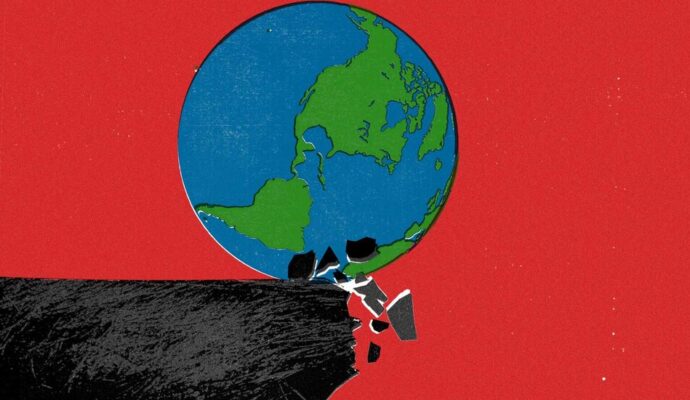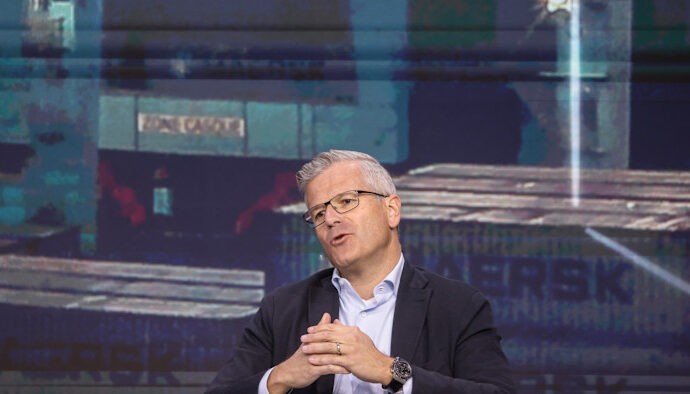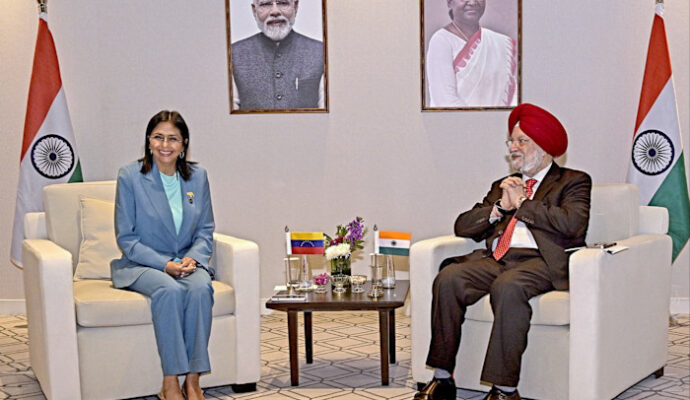
WASHINGTON — In remarks to staff on Friday, Kristalina Georgieva, the managing director of the International Monetary Fund, denied allegations that she pressured staff to manipulate a report to placate China when she was a top World Bank official and said she cares deeply about the integrity of data and analysis, according to people familiar with the meeting.
“I disagree with the implications for my role, and let me put it very simply to you: Not true,” she said, according to a transcript of her remarks.
A day earlier, an internal World Bank investigation concluded that Ms. Georgieva was among a group of senior World Bank officials who pressured the team that conducts the annual Doing Business survey to inflate China’s standing in its 2018 report. The findings have raised questions about Ms. Georgieva, who was the World Bank’s chief executive at the time, and have led to a review by the ethics committee of the I.M.F.
The meeting on Friday, which was held mostly virtually, had been previously scheduled to prepare the staff of the I.M.F. for its annual meeting held jointly with the World Bank.
Ms. Georgieva addressed the controversy at the outset of the meeting, reiterating her public statement that she “fundamentally disagrees” with the characterizations in the report and insisting that the inquiry would not be a distraction. She did not litigate the details of the allegations, but she said that asking staff to double-check something was not the same as pressuring it to change data, methodology or an outcome.
“Neither in this case nor before or after have I put pressure on staff to manipulate data. I would ask staff to please check, double-check, triple-check, but never change, never manipulate what the data tells us,” she said. “Why? Because I believe so strongly in the value of credible data and analysis that leads to policy recommendations for the benefit of our members. For the benefit of people.”
Ms. Georgieva expressed remorse that the inquiry had caused an uproar, but she insisted that it would not be a distraction.
“It is my responsibility that this does not interfere with the incredibly important work we do,” she said. “So let’s focus on that work, and that is what the focus of the discussion we will have today is all about.”
According to the World Bank investigation, which was conducted by the law firm WilmerHale at the request of the bank’s ethics committee, officials in 2017 were concerned about negotiations with members over a capital increase and were under pressure not to anger China, which was ranked 78th on the list of countries that year and was set to decline in the 2018 report.
The investigation found that Ms. Georgieva was “directly involved” with efforts to improve China’s ranking. At one point, according to the report, Ms. Georgieva chastised the bank’s China director for mismanaging the bank’s relationship with the country.
On Thursday, the World Bank said it was ending its annual Doing Business survey. The report has been used for years by developing countries to lure foreign investment and by international investors making decisions about which markets to explore.
In an email to staff on Friday evening, David Malpass, the World Bank president, said he was “deeply disappointed” by what had happened under the watch of his predecessors and pledged to foster a healthier culture at the institution.
“It was troubling that many staff felt that raising concerns would have negative consequences for their well-being and their career,” Mr. Malpass said. “Intimidation, retaliation and bullying are unacceptable, and I’m committed to protecting against such behavior wherever we find it.”
The politicization of the survey is an indication of how China’s economic might is influencing multilateral institutions and the lengths that they will go to curry favor with the Chinese government. If China disengages in protest, institutions such as the World Bank lose credibility.
“China is clearly eager to control the international narrative about its economy and its government’s policy choices,” said Eswar Prasad, the former China director of the I.M.F.
Republican lawmakers, who have been critical of the I.M.F. for allocating emergency currency reserves to American adversaries, called for an additional investigation into what transpired at the World Bank.
“As the World Bank’s largest shareholder, the U.S. must demand accountability,” Senator Bill Hagerty, Republican of Tennessee, said on Twitter on Friday. “Multilateralism cannot mean just doing whatever is necessary to get more money from Communist China.”
Representative Andy Barr of Kentucky, the top Republican on the House Financial Services subcommittee that oversees international development, said the Treasury Department should look into how the I.M.F. aided China under Ms. Georgieva’s watch. He pointed to $650 billion of currency reserves, known as special drawing rights, that the fund disbursed last month, which Republicans have said should not have been given to countries such as China, Russia and Iran.
“Given Ms. Georgieva’s leadership of the I.M.F., Treasury should evaluate her actions in the run-up to the I.M.F.’s earlier approval of an S.D.R. allocation, her advocacy for new trust fund assistance involving China, and her ongoing work surrounding the I.M.F.’s governance review, which has implications for China’s influence at the fund,” Mr. Barr said.
The Treasury Department, which serves as America’s liaison to the I.M.F. and has significant voting power, expressed concern over the allegations and said it was analyzing the findings of the investigation.


